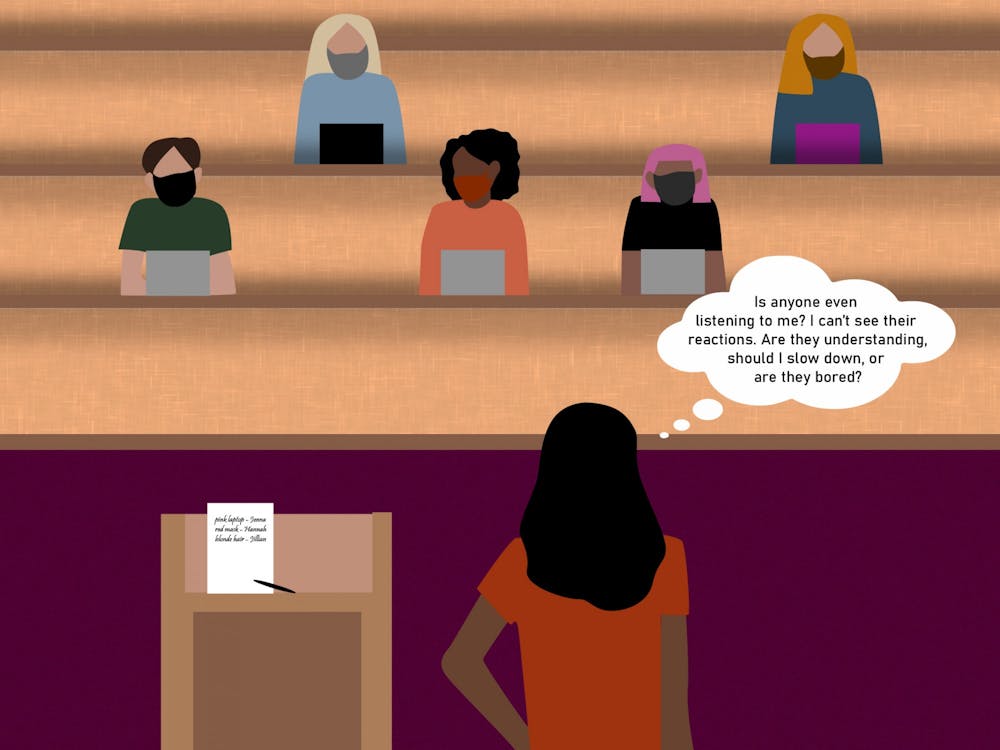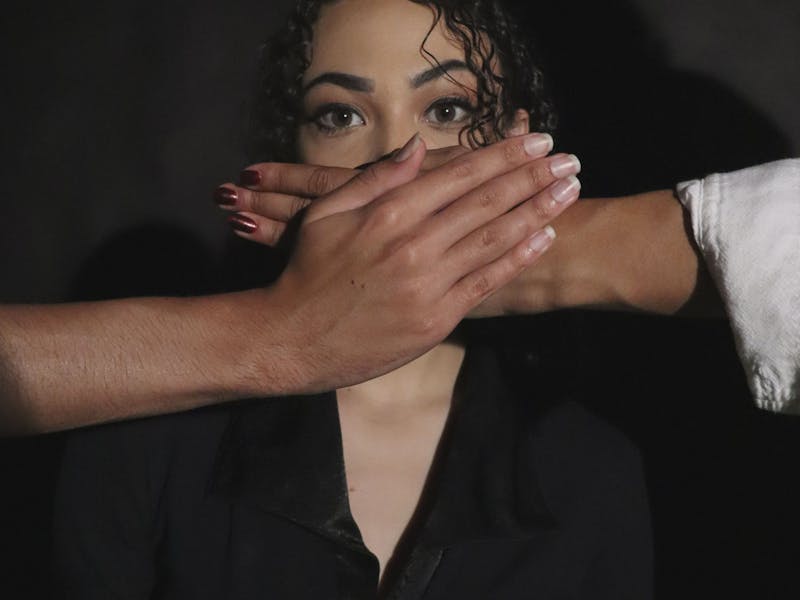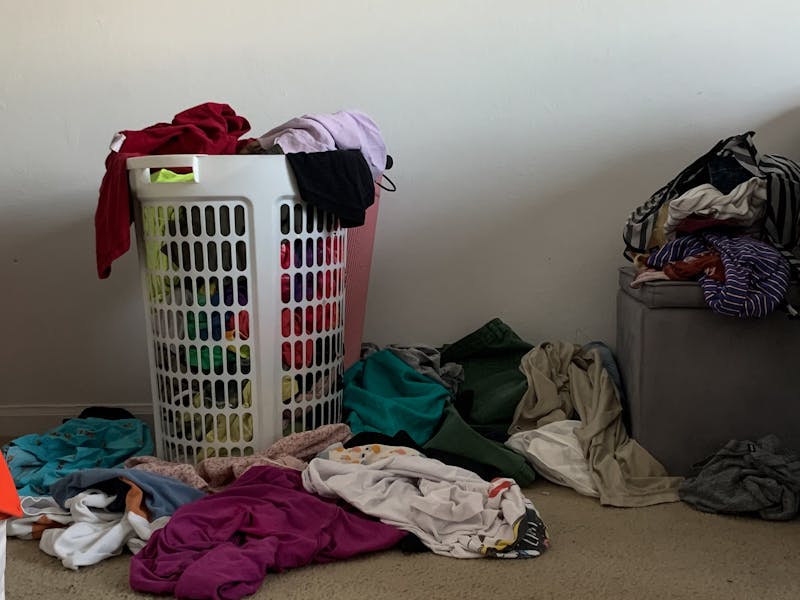I have thought of myself as someone who loved going to school for as long as I can remember. Learning brings me joy and has helped me recognize more about myself than anything else in my life. Additionally, I have had many outstanding educators throughout my schooling career who have aided in shaping me into the young woman I am today. My parents took the permissive parenting approach and maintained it my entire upbringing, meaning there was not a lot of structure in my day-to-day life, and very few rules. School was the only place I had a consistent schedule and knew what to expect. It gave me a sense of security.
Going to school always could be stressful for any student. But for those who have been living through the pandemic, the classroom has switched from a place where thoughts and creativity can flourish, to somewhere that raises new concerns and emotions as to how we as a society are handling this pandemic. The pandemic has completely changed the state of student life. Whether it be because of the importance of proper mask-wearing in a cramped space or questions surrounding vaccination status, the classroom is now leaving both teachers and students riddled with new stressors, anxiety and confusion.
Many students, myself included, are now lost when it comes to learning. With a year and a half of almost complete online instruction, having classes in person has entirely changed my approach to being a student. And to be completely transparent, it hasn’t been in the best way. To put it simply: I have forgotten how to learn.
My attention span has dwindled, my patience has flown out the window, I am distracted by everything, I break out in a cold sweat if my name is called on randomly and I couldn’t tell you the last time I willingly spoke to the person I sit next to in any of my classes. Out of my four in-person classes this semester, I have one class where every student:
- Wears a mask
- Wears their mask correctly
With vaccines and boosters being more widespread, I and many other students feel okay with coming to class in-person. However, that is spoken by individuals who are not immunocompromised and are fairly young. That being said, I have never felt as overwhelmed, anxious, confused and worried as I am now when entering a classroom, and a lot of our instructors are experiencing similar feelings.
Garnet and Black talked with several professors in various departments at the UofSC to get their perspectives and opinions on how the University has handled the pandemic, their comfort level with teaching and any newfound anxieties that have presented themselves over the past two years.
A professor within the English Department at UofSC, who will be referred to as Dr. Doe for anonymity purposes, shared their thoughts on the tension that has surfaced from these unprecedented classroom conditions. When asked about what challenges the pandemic has added to teaching, they replied, "Covid and Covid safety protocols have completely changed the sorts of stresses and pressures that go along with teaching. The most immediate anxiety is whether or not I'll become infected or infect my students as a result of meeting with them in-person twice a week." They added, "Might I die as a result of Covid contracted through in-person teaching? Might I be the cause of someone else's death? Might I come to suffer from, and cause someone else to suffer, long Covid, the lasting effects of which we still don't fully understand? But beyond all that, I also worry about the way in which masking will make it harder to really make a meaningful connection in the classroom. And most of all, I worry about the mental health of my students, who are under almost constant pressure from the pandemic, even if they are physically safe from infection."
Dr. Chelsea Estancona, an Assistant Professor within UofSC’s Political Science Department, brought a new perspective. When asked about her comfort level with teaching in-person, Estancona said, “At this point, I’m fairly comfortable in the classroom. Though it is important to note that this is spoken as a young-ish person who is not immunocompromised, has no small children, and lives far from older or immunocompromised family. I’m only teaching graduate students at the moment, which means that I had a smaller amount of students for the main wave of the Omicron variant. Had I been teaching a larger class, I might have had anxiety about proper mask-wearing or ability to distance in the classroom.”
Dr. Burke Dial, a former neurosurgeon and now professor within the History Department at the University, shares similar opinions to Dr. Estancona about this topic. “My comfort level for teaching in person is high,” Dial said. “I began in the Fall of 2020 when I expected we would not be able to continue with in-person classes.” He finishes, “I am still comfortable with it, but I will be less comfortable if the University drops the masking requirement in classrooms.”
Dr. Doe agrees that eliminating a mask mandate will lead to experiencing heightened "stress, anxiety, and eventually burnout" amongst those in our community. "According to the latest data from UofSC, three out of every ten students are unvaccinated. Vaccination rates are even lower for staff and only marginally higher for faculty," Doe said. "That means in a typical class of 32, about ten students are unprotected. These students are more likely to become infected and to infect others than those who have been both vaccinated and boosted ... Because we are legally forbidden to require vaccinations, or ask about any student’s vaccination status, there's an element of constant dread and concern over how safe any of us are, or who might be a vector for infection. Clinical research has demonstrated over and over that when we don’t feel safe it can become hard, or even impossible, to learn, so uncertainty over-vaccination status has a direct impact on the quality of education our students receive."
When I asked Dr. Dial how he felt due to the unknowingness of the vaccination status of his students and colleagues. “Because the vaccination levels are high, 70% for students and 80% for faculty, I am proud of our community. I take considerable comfort in the fact that the majority of my students are vaccinated and diligent in their masking,” Dial said. “Obviously, I don’t know which 30% of our students are not vaccinated, but I do think that uncertainty might actually help all of us maintain the requirements for distancing and masking ... It’s probably better that instructors don't know which of the students are not vaccinated because it might adversely affect an instructor's feelings towards those students.”
Dr. Estancona also showed respect for the confidentiality of vaccination status amongst those on campus. “On an individual level, I respect and support the need for privacy on this issue. That said, I believe the University could have better communicated that vaccines are our best means of tackling the long-term spread of this virus and the robustness of the science supporting their safety,” Estancona said. She also commented on student behavior and how students’ needs have changed while attending classes since March of 2020. “Our role when it comes to ensuring students’ success can already be muddled. And we’re seeing far more, understandable, anxiety and emotional difficulty. We as professors have very little training on how to walk the line between scholarly rigor and compassion, which can be particularly stressful during times of crisis.” When asked what additional stressors are present now in the realm of college courses amidst a pandemic, she shared, “The greatest stressors have been knowing how to support students during this time. And the general uncertainty about what the virus will mean for teaching modalities and our role as faculty. As professors of college students, we are trained as educators rather than rule enforcers. And lately, we’ve been asked to enforce rules around mask-wearing, etcetera with little guidance or support.”
Estancona added, “An additional concern has been the uncertainty about how or when or what ways we would have to re-work classes for online learning. My classes are discussion-heavy, and the online format robs us of the ability to do this for larger sections. It seems as though the public perception has been that with this pandemic, online learning happens largely because ‘professors don’t want to work,’ But I can assure readers that online classes take more work, not less, and are far less enjoyable," as many students who have experienced online classes would agree. “In general, our workload has increased during the pandemic as we’re faced with unexpected challenges in planning, grading, and offering students support,” she adds.
Despite the pandemic having increased tension encompassing spaces, it has shown the power of our community. A large part of the UofSC student body has worked increasingly hard since March 2020 to help put an end to the pandemic. With mandatory monthly testing, adhering to mask mandates and distancing when possible, we can make a difference. When we work together, we can help keep everyone safe.
Education is just one aspect that has taken a large change from what we knew it as years ago. But this has also exemplified how important it is to consistently keep educating ourselves. There will never be a point where we have learned too much. By educating ourselves, coming together and acknowledging these newfound stressors and fears, we can be better equipped to deal with this new approach to classroom life. Although our daily life as we know it might not ever go back to the way it was, it may not be a bad thing. We can move forward. There will always be new challenges we have to face, whether that be as an educator, a student or just a person. What COVID-19 has pulled out of many individuals is our capacity for understanding and compassion. I will choose to revel in this and keep making an effort to keep those around us safe. I encourage you to do the same. And reach out to your professors if you think it might help. They get anxious too.



